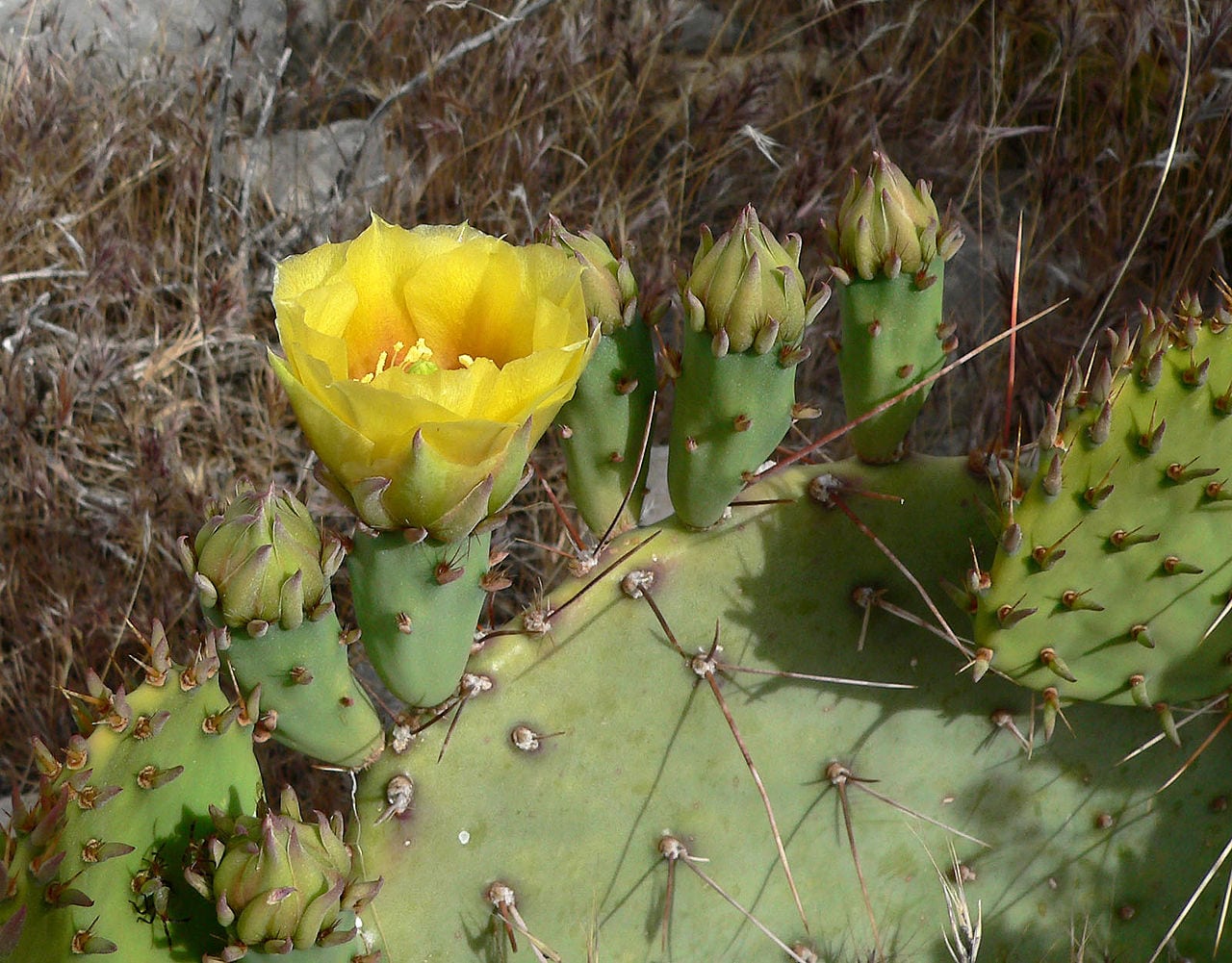Engelmann Prickly Pear Info – Learn About Growing Cactus Apple Plants


Sign up for the Gardening Know How newsletter today and receive a free copy of our e-book "How to Grow Delicious Tomatoes".
You are now subscribed
Your newsletter sign-up was successful
Engelmann prickly pear, also commonly called cactus apple plants, is a wide-ranging species of prickly pear. It is native to desert regions of California, New Mexico, Arizona, Texas, and northern Mexico. This is a pretty plant for desert gardens, and it will grow at a moderate rate to fill in large spaces.
Engelmann Prickly Pear Cactus Facts
Prickly pears belong to the cactus genus Opuntia, and there are several species in the genus, including O. engelmannii. Other names for this species are tulip prickly pear, nopal prickly pear, Texas prickly pear, and cactus apple. There are several varieties of Engelmann prickly pear as well. Like other prickly pears, this species is segmented and grows and spreads with multiple flat, oblong pads. Depending on the variety, the pads may or may not have spines that can grow up to three inches (7.5 cm.) long. An Engelmann cactus will grow up to four to six feet (1 to 2 m.) tall and 15 feet (4.5 m.) wide. These cactus apple plants develop yellow flowers at the ends of the pads in spring of each year. This is followed by dark pink fruits that are edible.
Growing Engelmann Prickly Pear
Any southwestern U.S. desert garden is suitable for growing this prickly pear. It will tolerate a variety of soils as long as there is no chance of standing water. Full sun is important and it will be hardy to zone 8. Once your prickly pear is established, you shouldn’t need to water it. Normal rainfall will be adequate. If needed, you can prune the cactus by removing pads. This is also a way to propagate the cactus. Take cuttings of pads and let them root in the soil. There are few pests or diseases that will bother prickly pear. Excess moisture is the real enemy of the cactus. Too much water can lead to root rot, which will destroy the plant. And lack of airflow can encourage a cochineal scale infestation, so trim pads as needed to keep air moving between them.
Sign up for the Gardening Know How newsletter today and receive a free copy of our e-book "How to Grow Delicious Tomatoes".

Mary Ellen Ellis has been gardening for over 20 years. With degrees in Chemistry and Biology, Mary Ellen's specialties are flowers, native plants, and herbs.